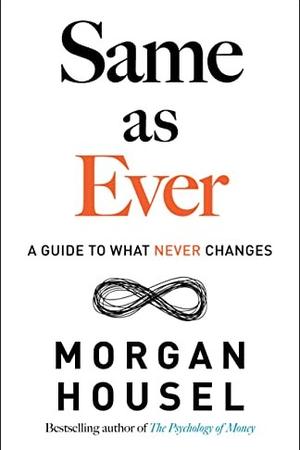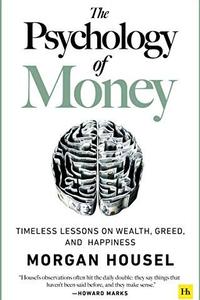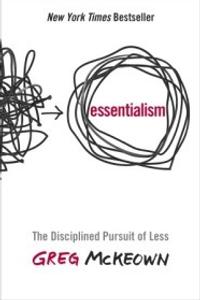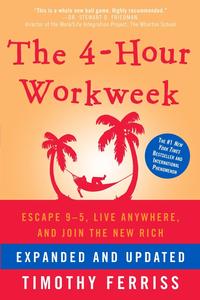
Same As Ever by Morgan Housel: Summary & Notes
by Morgan Housel
In One Sentence
While the future is unpredictable, human behavior and the timeless principles that drive it remain constant—understanding what never changes is more valuable than predicting what will.
Key Takeaways
- The world changes; human nature doesn't
- Stories beat statistics in how we understand the world
- Expectations drive happiness more than reality
- Risk is what you don't see coming
- Long-term thinking is rare and powerful
- Simplicity and flexibility beat optimization
Summary
Housel, also the author of The Psychology of Money, is a master of simplifying complex topics, and this book is no exception.
To summarize in one sentence: it’s impossible to predict the future, but we can use the past to predict how people will behave. That’s what will never change.
An excellent book for anyone looking for universal principles for clearer thinking about the world, their own life, their career, and anything in the future.
Who Should Read This Book
- Fans of The Psychology of Money
- Anyone interested in timeless wisdom
- Investors seeking perspective
- People who want to understand human nature
FAQ
What is the main idea of Same As Ever?
Instead of predicting what will change, focus on what never changes: human psychology, risk, greed, fear, stories. These timeless patterns are more useful for decision-making than trying to forecast an unpredictable future.
📖 Chapter-by-Chapter Breakdown
Click to expand the full detailed notes for every chapter →
📖 Chapter-by-Chapter Breakdown
Click to expand the full detailed notes for every chapter →
Notes
- It’s impossible to predict the future. But we can use the past to predict how people will behave.
- The things that surprise us are what matter, but we can never predict them. Instead, we should aim to be prepared.
- “Invest in preparedness, not prediction.”—Nassim Taleb
- Happiness = reality - expectations. It’s never been easier to be envious of others’ lives.
- People who do extraordinary things and think in strange ways often have other personality traits that aren’t good.
- People want certainty, not accuracy.
- Stories are always more powerful than statistics.
- A good example of this is the stock market: the valuation of a company is a number from today multiplied by a story about tomorrow.
- The most compelling story often wins, which means that there are lots of opportunities to make old things new with a better story.
- Some of the most important forces in the world are the hardest to measure.
- “The thing I have noticed is when the anecdotes and the data disagree, the anecdotes are usually right. There’s something wrong with the way you are measuring it.”—Jeff Bezos
- Most of the great things in life gain their value from two things: patience and scarcity. Trying to speed things up or make it too big ruin them.
- Stress is a tradeoff for higher motivation and progress.
- Good news happens over a long period, and is often invisible. Bad news happens quickly and is immediately visible.
- We underestimate how much impact small improvements over a long period of time can have.
- Inefficiency is desirable in many ways: free time helps us think, slack in a business adds resiliency, etc.
- Everything has a price—not usually a sticker price—and the price is usually proportionate to the rewards. That means you must learn to endure some pain to achieve things.
- “If you’re efficient, you’re doing it the wrong way.”—Jerry Seinfeld.
- “If you can get your work life to where you enjoy half of it, that is amazing.”—Jeff Bezos
- Most competitive advantages eventually die.
- Things are rarely better on the other side, but they often appear that way.
- When the incentives are crazy, people are crazy. It’s why unsustainable things can last longer than we anticipate.
- Nothing is more persuasive than what you’ve experienced firsthand.
- Long term success is more about maintaining flexibility than time. You need to be flexible to withstand downturns and unexpected events, and you need to convince those around you to go along for the ride.
- We are attracted to complexity instead of simplicity, but there are no points in life for difficulty. Often, we can save a lot of time and headache by focusing on the simple underlying principles, even though it’s less appealing.
- Most debates aren’t actual disagreements; they’re people with different experiences talking over each other.
- The common reaction to an uncertain future is to try and forecast with more precision, more data, and more intelligence. Instead, do the opposite: look backward, and be broad. Study the big things in the past that haven’t changed.
Questions
Instead of specific advice, ask yourself these questions:
- Who has the right answers but I ignore because they’re not articulate?
- Which of my current views would I disagree with if I were born in a different country or generation?
- What do I desperately want to be true so much that I think it’s true when it’s clearly not?
- What is a problem that I think applies only to other countries/industries/careers that will eventually hit me?
- What do I think is true but is actually just good marketing?
- What haven’t I experienced firsthand that leaves me naive about how something works?
- What looks unsustainable but is actually a new trend we haven’t accepted yet?
- Who do I think is smart but is actually full of it?
- Am I prepared to handle risks I can’t even envision?
- Which of my current views would change if my incentives were different?
- What are we ignoring today that will seem shockingly obvious in the future?
- What events very nearly happened that would have fundamentally changed the world I know if they had occurred?
- How much have things outside my control contributed to things I take credit for?
- How do I know if I’m being patient (a skill) or stubborn (a flaw)?
- Who do I look up to that is secretly miserable?
- What hassle am I trying to eliminate that’s actually an unavoidable cost of success?
- What crazy genius that I aspire to emulate is actually just crazy?
- What strong belief do I hold that’s most likely to change?
- What’s always been true?
- What’s the same as ever?



